#improve
Text
FINALLY CLOSING THE GAP BETWEEN YOU AND YOUR HIGHEST SELF IN 2024.

You are going to STOP scrolling endlessly for self-help and advice content and you are going to STOP and apply the knowledge you have endlessly gained. Obtaining help and advice knowledge is useless if it goes through one ear and comes straight out the other. STOP becoming addicted to the idea of scrolling and scrolling for your problems yet you already have the resources to fix them. A fool is a person who cannot decide to take action despite having access to the information needed to do so.
BREAKING FREE FROM THE SCROLLING CYCLE
Learning and Applying is one thing, but Learning and Staying Stationary is literally brain rot. You're addicted to the idea of change and the end result, but you never take the steps towards discipline with a personal structure to get that result. You keep looking for quick fixes and easy hacks, but life is not a quick fix and no hack can elevate your life from 0% to 100% without visiting the rest of the numbers first.
TAKE A BREAK FROM SCROLLING
Take time away from your usual scrolling and learn to be on your own. Learn your own ways of self-care, learn what works for you and understand what you need, because nobody is the same. Following a millionaire's morning routine will not make you a millionaire. This routine has worked for someone to feel and be productive in the morning and was probably curated over the years to suit their current lifestyle. So, seeing other people's successes and comparing their working ways to your life is unrealistic if you are not in a position to implement them. Going straight from 0% (Being unproductive and procrastinating) to 100% (Being incredibly Productive and in tune with self) will not be sustainable for someone who has not built the discipline and the inner foundations required for it. STOP seeing information online and taking it without ALTERING anything to your personal situation.
STOP ASKING HOW TO AND JUST DO
"How to lose weight, How to become more social, How to do this and that"
Most of these things you ALREADY know the answer to. Everybody knows that to lose weight, you need to burn more than you consume. There is literally no other way, no magic and no secret hack, just that simple fact.
I guarantee you know that to become more social you just have to be social. Learn to be comfortable in social situations which will require inner work, but it's not a difficult concept. Most of us know what we need to do, yet we still try to find quick fixes or another way that same message is presented to us differently. We act as if we are improving and developing on our "improvement" journey yet we are just finding coping ways to feel like we are moving, yet we are still in the exact same place as before.
I know you know what to do, I know you have researched what you should do and ways you can do it. So why are you not doing it? Why are you still not where you want to be? If you are not where you want to be, then what you're currently doing needs to change. You cannot do the exact same thing you've been doing for years and expect a different outcome. You need to curate a routine suited to your needs that is realistic and achievable to adopt.
LEARNING TO MOVE ON YOUR OWN, STOP DEPENDING ON OTHERS TO FUEL YOUR SUCCESS JOURNEY
LISTEN TO: NOBODY IS COMING TO SAVE YOU BY JULIENHIMSELF
Make yourself your safe space, your foundation. When you see yourself in the mirror you should be able to tell yourself "I love you", you should be so sure in what you do that nobody else can contradict what you believe in yourself, this is the end goal of self-improvement. Many of us have put aside our goals because we "are not ready", "people may judge us" or "I need to be/achieve ___ to.."
Now don't get me wrong, I'm on this journey with you. I write on this blog to teach my brain how to think in the higher mindset that I'm creating for myself. I too have thoughts like this which is why in 2024 we are going to break out of our old selves to make room for our new selves together. We have to lose ourselves to find ourselves. If you're mood and self-worth are controlled by other people's opinions, then you will never advance further with yourself and will remain stationary. You have to stop allowing other people to determine whether you are allowed to pursue your desires or if you shouldn't because of fear of rejection. Don't take life too seriously, we are only here for so much time. So what if people make fun of you? In a few years will you look back and be proud and fulfilled of your past or feel regret and disappointment?
LISTEN TO: WHY YOU CARE SO MUCH BY JULIANHIMSELF
+
LISTEN TO: HOW TO DETACH BY VICKITA TRIVEDI
The only way to get to 0%-100% is by doing.
Embody your potential
#self worth#dream girl#that girl#self improvement#improve#self growth#self gratitude#new years#highest self
2K notes
·
View notes
Text
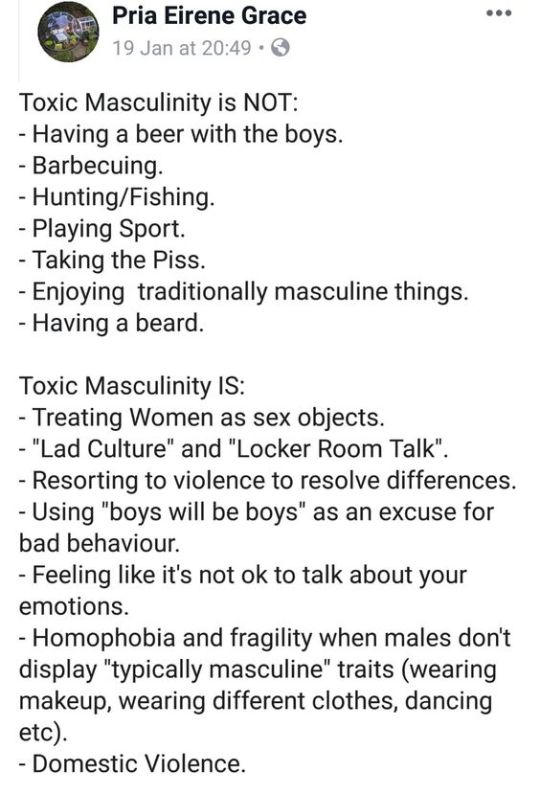
#masculinity#lgbtq#lgbtq community#lesbian#nonbinary#sapphic#mental health#queer#guys#mental illness#shirtless muscle#black men#mental wellbeing#mental breakdown#improve#problems#prevention#common#care#mentalheathawareness#lgbt pride#lgbtqia
5K notes
·
View notes
Note
Hi can you give me some tips to improve my writing
Hi there. So I made it into a mnemonic, hope it's helpful.
IMPROVE
I - Intention
Set an intention first. It could be as simple as 'I love writing' or something like 'I am the greatest writer in the world.'
M - Make mistakes
Writing is a holistic process. You are bound to make mistakes while drafting, editing, etc. Don't be afraid to make mistakes but also learn how to correct them.
P - Practice
It goes without saying. Practice, practice, and loads of practice. Rome wasn't built in a day.
R - Reading
Just as food is fuel for the body, reading is fuel for writing. Read something everyday, be it an article or a poem or if you have the time, a book. Join a book club maybe. Or explore different genres.
O - Order/Routine
If possible, set a routine for your writing. Have a scheduled time in the day to write and make it a priority.
V - Vocabulary
Look up new words as you come across them. Experiment with words in your drafts. It will greatly polish your writing.
E - Enjoy the process
Most importantly, even if you don't follow any other tips, you should definitely enjoy your writing. It's a process of creation, so have fun with it and don't pressurise yourself!
You will find so many rules and tips online and offline both that can help you improve your writing. You will also find that different people have different writing styles and tips.
One important tip is that there are no rules!!
Yet these are a few that I could simplify for you to remember.
Happy Writing!!
#poetici#poets on tumblr#writeblr#writers and poets#writers on tumblr#writerscommunity#writing#dead poets society#excerpts from a book i'll never write#writing tips#writer#tips#writing advice#tips for writers#improve your writing#mnemonics#improve#poetici ask#dear friend series
61 notes
·
View notes
Text
An Introvert's Guide to Winning
If you are like me who is an INTJ-T is seems like the world is not your oyster. in fact, the idea that fortune favors the brave still makes you ponder. Does that mean that if I am not brave enough, I won't be fortunate? Now imagine being an introvert who is also shy. Here are ways to win as an introvert.
Take advantage of your introversion and be a great observer. As someone who grew up shy and introverted it was hard to see my friends winning. Most introverts stay away from large crowds, they prefer smaller intimate settings and if they are socially awkward it's harder. So here is what I do, I go to a large crowd and watch people, I look at everyones body language, I walk around like I am looking for someone then I pause in awe of how good looking many of them are and how lucky I am. Then I approach the people who look shy or do not have anyone to talk to and I begin asking them questions and find similarities. Being an introvert means you spend more time in your thoughts but what are you thinking? Think in awe and approach a person based on that. It is not about how many people you can talk to but the quality of conversations you have. often times you become lit because you have found someone who thinks just like you and that makes other people want to pitch into that fun conversation that you have.
Fine tune your body language and style: So, you are invited to your bosses birthday and you have turned down many outings but you don't want to disappoint your boss by not going. So, you decide to show up. But how do you show up? You will show up looking your best, put your best foot forward and radiate the energy that is within you. Often times other people will gravitate towards you or the host might introduce you to other people.
Take the road less traveled: If you are afraid of not having a talking partner, look for other guests who do not have talking partners or look shy. They are easier to approach, so engage them by asking open ended question, show interest, and make them feel very comfortable around you. This has happened to me several times. I would go to an event and be on the lookout for the oldest person in the room that is often ignored or that person that is by the corner in the dark and illuminate their minds with my quiet extraversion.
Be a great storyteller: I do not speak loudly or know everyone in an area. I get tired quickly when I am out and about so I try to give a great story about myself or a random thing that I saw in the mst imaginative, enticing, and romantic way possible. Making the listener feel special about the conversation.
Bring the best in you: Being great at what you do will make people speak of you in rooms you never dreamed of getting into. I was recently introduced to the European Union Deputy General of Trade by my Negotiations professor because he considered me one of his brightest students and gave me an invite to the conference the diplomat attended (I was the only student in the room).
Capitalize on 1 on 1s: See opportunities to be alone with someones as a time for you to shine. During interviews be elated that this person has chosen to spend time getting to know only you. So this is your time to show off the personality that you have been hiding from the world.
#self improvement#self love#beauty#growth#mindfulness#self development#classy#get motivated#mindset#mind control#motivation#meditation#emotional intelligence#intelligent#interesting#improve#ideas#intellectual#students#smart#high culture#self care
305 notes
·
View notes
Text
Stop waiting and do something with your life. You won't get results if you sit around waiting for something to magically happen. Life isn't going to change for you, and if you think that way, you're self-centered and stupid. Oh! Do not you think? Then do something to prove yourself wrong! You are the only one who can change your life, so do something about it!
#amoramoons help#personal growth#goals#focus#habits#improve#success#mindset#wonyoungism#it girl#motivation#glow up#self development#self care#self growth#self improvement#studyblr#study motivation#body goals#lifestyle#dream life#high value mindset#resilience
165 notes
·
View notes
Text
“Another day, another book. This time a love story”
*the book on the display is a red book, with obsidian text*
“ A rose to a lover, this is a lovely book about the right way to deal with a love triangle. Does anyone what to hear an excerpt?”
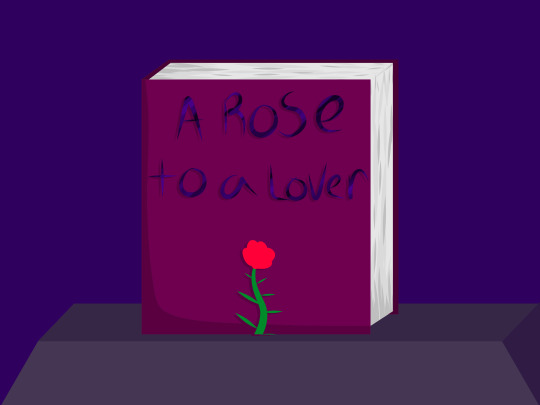
#wizardposting#funny#wizard island island#wizard shit#wizardblr#wizard posting#wizard intro#new wizard#wizardblogging#wizard blogging#wizard island#wizard tumblr#wizard#improv#improve#improvisation#creative writing#writers on tumblr#writing challenge#polyamory#polycule
32 notes
·
View notes
Text
If you could change one thing about yourself, what would it be? “I would just be content with every moment as it is instead of gnashing my teeth trying to change things all the time.”
— Jodi Foster, from "Jodie Foster Answers the Proust Questionnaire" (Vanity Fair, February 23, 2024)
20 notes
·
View notes
Text
Paul was in an improve group in college and the others in the group were all theater nerds so they kept doing musical bits
And he hated it and swore off musicals and improve
Until Pokey took over hatchetfield, and he had to get out by improvising inevitable
#this is how i think he survives in some timelines#improve#hatchetfield#paul matthews#starkid#inevitable#emma perkins#pokey#pokey starkid#lords in black
35 notes
·
View notes
Text


Who said I’m done? - says someone who’s tpn brain rotting
#tpn scarlet#tpn manga#sister scarlet#tpn sisters#tpn fanart#tpn#Yu’s 🌕#digital art#WE WERE SO ROBBED.#I wanted to see her and the others animated#sighs#adapt#improve#overcome ig#I honestly need to see them when they’re younger#the brutality of the system and the effects of it??#yes. that’s what we wanted#what I WANTED.#we all deserve better
11 notes
·
View notes
Text
youtube
Improve - Darrow Fletcher (Improve Improve / Let's Get Together, 1977)
#Soul#Soul Music#Soul Music Songs#Music#Music Songs#Improve#Darrow Fletcher#1977#Atco Records#Youtube
9 notes
·
View notes
Text
How to Become a Better Writer
It can be easy to stagnate in your writing. To feel like you're spinning your wheels and not progressing.

"But I'm listening to all the writing podcasts all the time!" Unfortunately, it's not as simple as that. Writing podcasts are great (I highly recommend Writing Excuses)... but are best for passively absorbing ideas around the art of writing.
You cannot passively become a better writer.
So what should you do?...

There are 3 main things to really get going in your writing: reading, writing, and getting feedback. (And there's a bonus hidden power up at the end!)
Read the language and medium you want to write in--regularly. ("Medium" being prose vs poetry vs academic papers, etc.) Why is that?
You need to learn and get a feel for how the grammar of the language works. You can do that with textbooks or a tutor. But if you've got a gut feel for what prose "looks" like on the page, because you've done a load of reading, you'll have a gut feel when your prose doesn't "look" right.
For example, if you've read a lot of dialogue, your brain naturally picks up on the rule that if the dialogue would end in a full-stop (period) but is followed by a dialogue tag... a comma is used instead of that period. And you won't have needed to memorise that edge case rule.
Reading lets you immerse yourself in the form of it, and absorb how it functions along the way. Including all the subtleties of how prose works that is different to everyday speech or communication. And it gives you a great baseline to learn these intricacies more directly, because it can click into place with what you've already picked up through reading.
Consuming stories through any art form--film, comic books, audio podcasts, etc.--helps you figure out your own tastes, your likes/dislikes when it comes to what you enjoy in a story. Which will form your style of writing, as you gain experience.
So reading isn't really required. For some, reading is a lot more difficult than watching a TV show, or writing their own stories. So you can learn these things in other ways as I mentioned.
The reason reading is the go-to recommendation is it is simply the most direct route. You can develop taste, understand story, and pick up on grammar and how the language works... all at the same time!
Whatever route you take, this is particularly helpful in the early days of writing. Seeing books by established authors with the eyes of a writer is a different experience to that of a regular reader. Instead of thinking, "Okay, I understood that part." You think, "Wow, you can do that in a novel?!"
You pick up tricks you can use in your own writing, as you read. And pick up on things you don't like in the way they write. This is "active reading"...
Don't just read: think about how what you are reading actually works on your brain.
You might think about how you would have written that sentence, or how you would've had it played out slightly differently to better hit that dramatic sweet spot.
That's what developing your own style is like, also known as a writer's "voice." Developing taste is when you start to gravitate towards some movies over others, and enjoy reading about certain characters and plots over others. You naturally do this when you've watched a lot of shows and movies. And you'll naturally do the same as you read books, as a writer.
Simply noticing what you like and dislike about what you read leaves you with a better sense of what you want your stories to be like. Both in terms of taste (genre, plot type, kinds of character) and style/voice (how you use the language to tell a story).

Writing regularly gets you the practise you need. Get used to sitting down and writing words--paper, digital, doesn't matter. And it doesn't matter if it's good. You don't need to show anyone else everything you write. What matters is that you practise the art of writing.
In the past I've used this exercise to get into the habit of writing, without worrying about it being good, editing/polishing it up, showing other people, etc. which actually lets the words come a lot easier. You can get into the flow of writing a lot better if you're not second guessing yourself, and this exercise gives you no time for such an indulgence! [Freewriting Exercise]
This is great for setting up a "mode" within yourself in which you are only creative, and you never second-guess or edit or revise. This is a great thing to work towards as you write, as it'll make the act of creating in the first place much more manageable.
Think about it like this: when writing, your job is to slap down messy clay you can build with later.
Just writing something--anything--is productive in itself. And you'll probably start writing better stuff as you go just from the practise, and even find a story you want to develop from it!
But it's also good to finish things--both for the dopamine hit, and to be able to practise editing your work, understanding the structure of your story, and...

Getting feedback. Once you've got something you like but want to make better, get scientific! Ask people for feedback! (Preferably ask people that aren't your friends and family.)
Your goal in getting feedback is to understand how your writing is conveying your story to readers. What effect your use of language has on someone other than yourself.
Some will read it and like it, some will dislike like it, some may even hate it! Thing is, those are all subjective takes on what they read. When someone says a film "is good" or "is bad," they're really expressing that "it has things I like experiencing" or "it has things I don't like experiencing."
A hardcore fantasy fan might say a sci-fi film "is bad" because it doesn't have fantasy in it. Or visa-versa. All it speaks to is their personal tastes, not necessarily about the quality of the film as a whole.
Which means there's no need to worry. It's all just data.

Look at feedback like a scientist would the results of an experiment.
You're looking at your work in a scientific way. You're studying its effect on those readers. And through that analysis, learning how language affects their experience. Use that new understanding to bend language to your will so that it has the effect you wanted for your story.
This means it's not about doing what the readers want you to. Even if they're writers, and you respect their work... they are one reader among many. When it's published, it could be one reader among millions!
Others may have the opposite suggestion on the same piece. You could get 20 differing points of view. Don't give any one comment more weight than any other comment you might receive.
Learn about language and story, through reactions to your writing.
Use their reactions and suggestions to learn about language and story. Don't learn "how to make your story better," even if that's what they're trying to force on you.
Always, always, do what you want to do with your story. If you learn from the feedback and critique, and you end up wanting to tell your story differently, then do what you want and change your story. If you don't end up wanting to tell your story differently, do what you want and don't change your story.
In other words, any feedback can be taken or discarded at your own discretion. You're not trying to find out if your story "is good" or "is bad."
You're on a data-gathering expedition!
This process is vital to growing past writing readable prose and gaining mastery over the language--bending the words to your will and crafting experiences for readers to have.
By looking at things more scientifically, you'll begin to grow faster and faster. There's still a lot of subjectivity to it, of course. But that's the art: shaping another person's subjective experience by words on a page!
And as you do this more and more, you'll be able to write to a better standard even before you've gotten feedback.
"But it feels scary to share my work!"
It does, at first. "What if they don't like it? What if I get criticism?" The context of this process is that you are conducting experiments to gather data, sure. But it can be hard for your brain to get on board with that, and to skip the gut reaction of "oh no they don't like me!"
So here's one extra specific experiment you can conduct if you're worried about people seeing your work--even sharing complete stories we're proud of.
Write something you know isn't the best. Or is actually bad. First-drafts tend to be bad without editing--that's all just part of the process. So just write a little something.
This is safe enough; if you lack confidence in the first place, then thinking your writing isn't good is par for the course, even if it's good. So doing this on purpose shouldn't be a big deal.
Now, knowing it's bad, post it somewhere actually requesting feedback on it. Asking people to tell you what's bad about it.
You already know there's stuff wrong with it, things you might want to fix already. All that's happening is others are talking about the same things, and perhaps finding other aspects you can improve you didn't spot. That's the whole point of getting feedback: finding things that you'd want to fix that you didn't notice on your own!
But this way, you're initiating all of it, from writing "badly" to people telling you what you wrote "badly." That's what you wanted to happen.
And, even when you're more confident in your writing ability... that's what you'll be using feedback for too. This is like a practise run to get used to the feeling of putting something out there and people talking about what's good and bad about it.

Now, the uber-writers know this one last secret to growing as a writer: Giving Feedback (shh, don't tell anyone).
This is the juiciest of them all! You're active-reading... plus plus! Because you also have to put into words what is happening, which is even harder than just sensing you're not into how that writer did that one thing. You also get scientific with it--but from the other side!
That sentence didn't feel right to you. Why? How might it be changed to make it feel less weird? And how do you convey that to the writer so it's useful feedback?
That scene wasn't as impactful as you thought it was going to be. What about the structure of the story let that down? How might you shuffle things around to bring out the drama in that moment?
This is great practise for keeping your editor-brain separate to your writing-brain. You're practising not creatively writing at all, while being in the very analytical mode of finding any problems.
You're figuring out how to shape the messy clay into something more purposeful, easier to read, more effective. While being detached entirely from the text, because it's not even something you wrote! This mindset is very useful when you want to get into editor mode and work on your own stories.
This kind of deeper thinking is what you get by giving feedback to people asking for it. And those that are looking for feedback are from all sorts of backgrounds, and all sorts of skill levels when it comes to writing.
You can see a lot of new ideas, new ways of writing, new traps to fall into, and analyse them all to figure out what makes them tick. And they tend to not be entire novels, so you can get a lot of that in a shorter time, too!
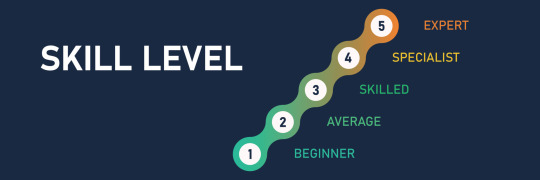
Just keep in mind those different skill levels when writing your feedback, however. Back when you were just starting out, if someone who seems to know what they were talking about said to you "it's good," like a family member might do... how would that have made you feel? On top of the world! And if they told you "it's bad," you would've quit writing on the spot!
So many writers have quit writing from bad feedback at an early stage for years!
This isn't to say you should coddle them and pat them on the head and send them on their way. Even if you sense that they're not at the "scientific" stage yet, they are seeking to grow as a writer. And hey, look at that--you're a writer, and you can help them grow!
So, start with a positive thing about their piece. Even if that's "you've got a clear vision of your world!" when you as the reader aren't exactly sure you have a handle on what that world is even if it's vividly described.
Be truthful, but find something that they've got a glimmer of that will help them in their writing journey. In the early days, finishing anything is tough. Having an idea and writing it down is tough. Getting tense correct is tough. Because it's all new to you.
Having a clear vision of their world isn't something everyone has. Sometimes it's so far in the background that you feel like you and the characters are standing in a blank white room. So even if the only good thing is that they have the confidence to have a world and present it to the reader... hype them up on that!
And whatever little slice of being a writer they've got is a good place to grow from. Nurture it, even in a brief comment pointing it out. Make them feel good about it.

Then, based on what their skill level might be, give them something to reach for in what they write next.
I like to make that clear to such writers... in the early days, you shouldn't be editing and revising and redrafting the same 3 opening paragraphs over and over, you should be writing new stuff all the time! So...
Give them something to work on for next time.
...Or next chapter, or whatever. Like, "For your next story, think about how you might show the world from your character's perspective more. What do they notice? What do they think about the statue in the distance? And how would they describe it? This helps the reader get to know the character better, just by how you narrate things. 👍"
Something simple, and understandable, with a hint of teaching them why that might be good for a story. Don't inundate them with your many pearls of wisdom and a full line-edit. Just gently help them take one more step in the right direction.
All of this is scaled according to the apparent skill level of the writer you're giving critique to, of course. A better-written story might warrant a real review of the story as a whole, and a longer list of aspects they could look into improving. Things like that.
Just be careful not to make people run away from writing. It's all too easy to cause.
29 notes
·
View notes
Text
MIRROR WORK + AFFIRMATIONS -
BASED ON 21 DAYS TO MASTER AFFIRMATION BY LOUISE HAY.
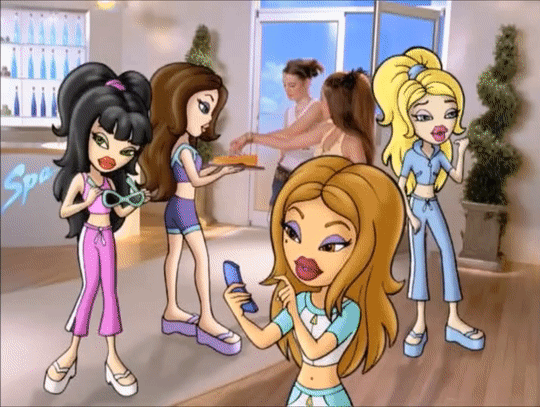
Mirror Work was a method originally developed by inspirational teacher Louise Hay as a way of getting in touch with the inner self. The primary purpose of mirror work is to develop self-love, self-care, and a more meaningful relationship with others. - Loner wolf
"The mirror reflects back to you the feelings you have about yourself. It makes you immediately aware of where you are resisting and where you are open and flowing. It clearly shows you what thoughts you will need to change if you want to have a joyous, fulfilling life."
The principles of mirror work:
Use affirmations that feel authentic to you
Dedicate at least two minutes every day
Do mirror work in private so that you aren’t disturbed (or feel the need to keep your guard up)
It’s okay to feel emotional – let yourself feel whatever comes up
Keep a journal where you record any notable experiences
"The more you use mirrors for complimenting yourself, approving of yourself, and supporting yourself during difficult times, the deeper and more enjoyable your relationship with yourself will become."
Affirmations
What are they?
The practice of positive thinking and self-empowerment
"Affirmations are anything you say or think. A lot of what people normally say and think is quite negative and doesn’t create good
experiences. You have to retrain your thinking and speaking into positive patterns if you want to heal your life."
Examples of changing negative words from into positive affirmations:
I hate my body. BECOMES I love and appreciate my body.
I’m not creative. BECOMES I am discovering talents I did not know I had.
I’m stuck in a lousy job. BECOMES Wonderful new doors are opening for me all the time.
I’m not good enough. BECOMES I am in the process of positive change, and I deserve the best.
"When you catch a negative thought, just think to yourself: That is an old thought; I no longer choose to think that way. Then find a positive thought to replace it as quickly as you can."
Examples of affirmations to practice for self-love: - aldohappy
I am worthy of love, respect, and compassion.
I am deserving of happiness and success.
I am a strong and capable person.
I love myself
I am able to create the life I want.
I am beautiful, inside and out.
I am free to be myself.
I approve of myself
I am allowed to make mistakes and learn from them
Find affirmations suited to your needs or create your own.
"Do this three or four hundred times a day, at least. No, it’s not too many times. When you are worrying, you go over your problem at least that many times."
"Give negative thoughts no importance. Just see them for what
they are—another way to keep you stuck in the past. Gently say to these thoughts, “I let you go; I approve of myself".
If you become hesitant about affirming affirmations, look within yourself and find the reasons why. Do you know?
Repeat and affirm positive affirmations to yourself with emotion. Don't just say the words for the sake of them. Really feel what you're saying and meditate on it. If you hate yourself and begin to affirm your love for yourself, really feel what that means to love and embrace yourself again.
#self worth#mentality#improve#mirror work#inner work#self improvement#self growth#self love#self care#self esteem#mental health#healing#letting go#healing journey
88 notes
·
View notes
Text
Misconceptions about Gender Reassignment Surgery and HRT
That they are performing surgeries on children left and right, and pumping children full of hormones. All of it the same day someone waltzes into a clinic on a whim.
If a child is prepubescent, literally all that's needed is the social transition, meaning a new name/clothes/haircut.
If a child starts to hit puberty and still wants to transition, most go on puberty blockers, which need the permission of both a parent and a psychologist, as well as a gender dysphoria diagnosis. Puberty blockers are 100% reversible and harmless.
If a child realizes they aren't trans later, they can simply stop taking them and go through puberty as normal.
If a child still wants to transition after this, they can usually start HRT around age 15/16, again with permission from a parent and psych. Bottom surgery is never performed on children, the lowest age being 18.
Again, usually, this requires having been on HRT for at least a year, as well as 3 letters from a therapist, psychiatrist, and the clinic providing HRT. These surgeries are also expensive as hell and rarely covered by insurance - most save for years and fly to another country to have them done.
The reactionary "they're mutilating our kids" narrative is simply bullsh8t fearmongering.
#trans kids#trans rights#transgender rights#trans women#queer community#cisgender#hormones#care#improve#hrt stuff#hrt#trans hrt#ftm hrt#trans#trans man#transgender#trans positivity#hrtech#top surgery#bottom surgery#queer kids#positive mental attitude#mental health#social transition
444 notes
·
View notes
Text

Improving Yourself
92 notes
·
View notes
Text
"The real growth is when you step away from a relationship that just might be another egoic attachment where we find ourselves afraid to let go of a person we're in a relationship with, because what we're really afraid to let go of is the level of consciousness we were at when we met that person. Relationships help us grow, but sometimes the highest growth in relationships occur when you allow yourself to walk away. And whether you're afraid to do that, whether you feel guilty because you think that you're creating pain in someone else's journey... all of those feelings that arise don't distract us from making the courageous choices we need to make. Instead they become the ones that we love more not less, while we make the courageous choices that advance our journey forward." - Matt Kahn
#relationships#consciousness#spirituality#life#love#girlfriend#boyfriend#human#psychology#philosophy#deep quotes#spirit#spiritual#transcendence#transcend#growth#improve#inspire#awakening#mind#ascension#expand#journey
14 notes
·
View notes
Text
Learning
I have always believed that learning more was a mission as I am sure that the more I will know, the better I will be able to help, serve, and take care of those I follow and support.
Learning is an activity that gives impressive results when done with attention and commitment. And the positive thing is that we can learn from everyone and everything, every single moment of our lives.
Image taken…
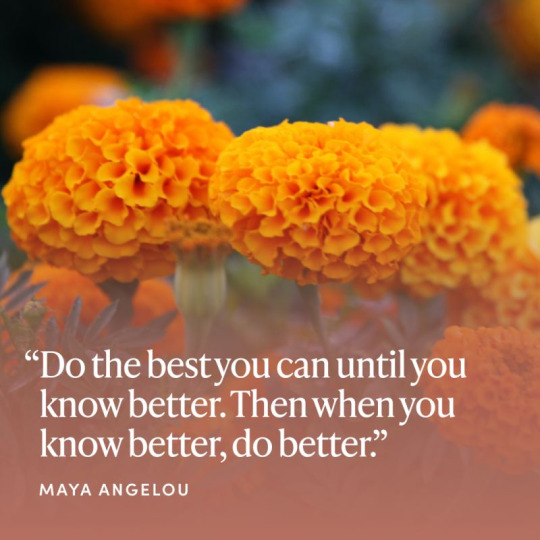
View On WordPress
#Achieve#achieve your purpose#care#Free to Achieve#Help#improve#learn#learning#love#Maya Angelou#purpose#quote#Raffaello Palandri
53 notes
·
View notes